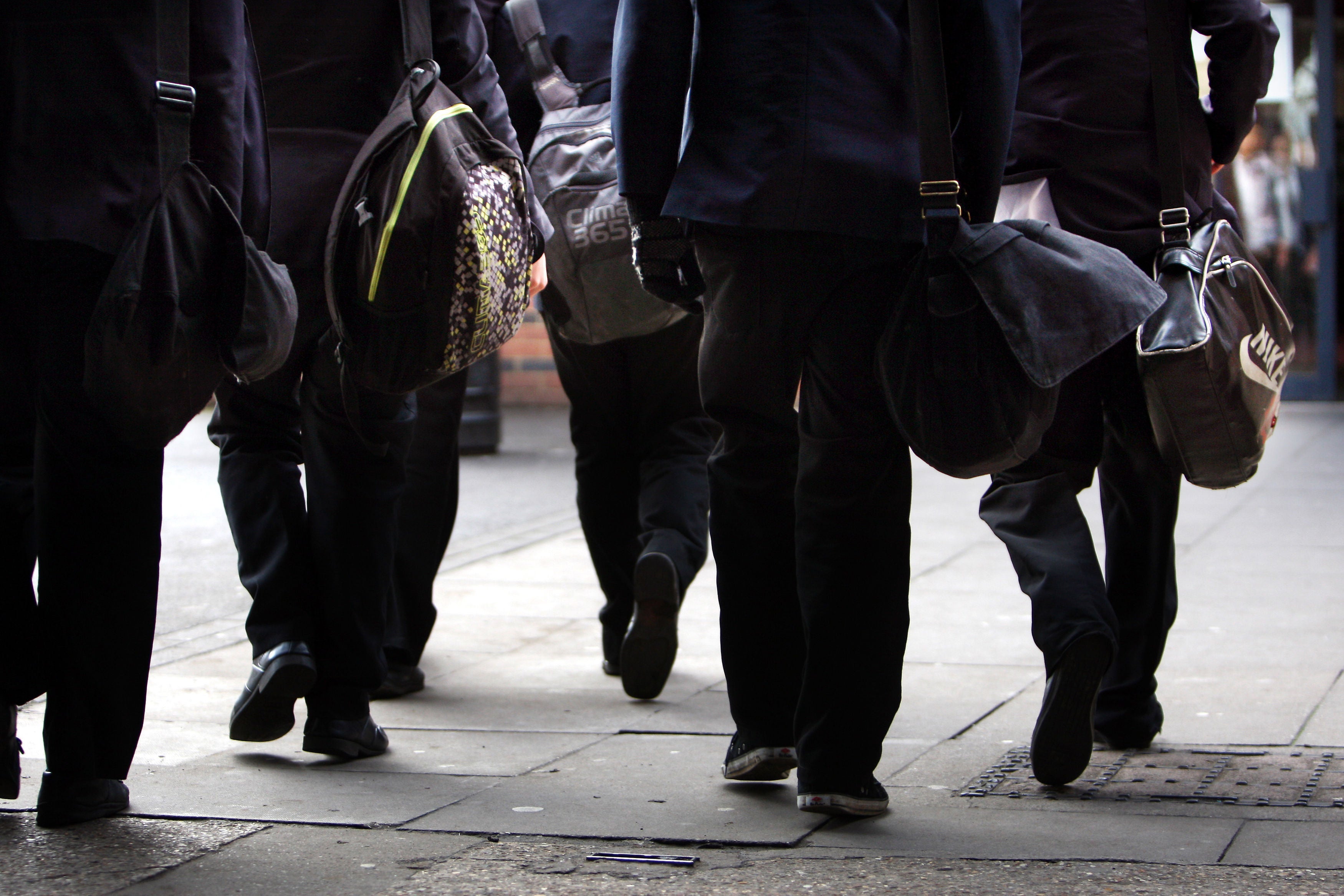Unconscious bias in marking sees lower grades for poor students, study suggests
The findings, from a study of 416 teachers, found a grading difference of 4.4 percentage points between higher and lower socioeconomic status pupils.

Your support helps us to tell the story
From reproductive rights to climate change to Big Tech, The Independent is on the ground when the story is developing. Whether it's investigating the financials of Elon Musk's pro-Trump PAC or producing our latest documentary, 'The A Word', which shines a light on the American women fighting for reproductive rights, we know how important it is to parse out the facts from the messaging.
At such a critical moment in US history, we need reporters on the ground. Your donation allows us to keep sending journalists to speak to both sides of the story.
The Independent is trusted by Americans across the entire political spectrum. And unlike many other quality news outlets, we choose not to lock Americans out of our reporting and analysis with paywalls. We believe quality journalism should be available to everyone, paid for by those who can afford it.
Your support makes all the difference.Unconscious bias in marking could be contributing to the underperformance of children from poorer backgrounds, researchers have suggested.
Teachers were more harsh in their grading of students from a lower socioeconomic background, a study from the University of Sussex appeared to show.
Those behind the study insisted it was not an “attack on teachers”, but rather should be used “as a mandate for educational institutions to better support teachers” with training to mitigate potential biases.
The findings, based on an experiment with 416 teachers, found a grading difference of 4.4 percentage points being awarded to those of higher and lower socioeconomic status.
Headteachers’ union, the Association of School and College Leaders (ASCL), described the study as “interesting, if somewhat alarming” and said it would be useful for its results to inform professional training and development programmes for teachers.
In the study, published in the British Journal of Educational Psychology, the participating teachers were randomly assigned to assess an identical piece of work written by a Year 6 student who was aged 10 or 11 and varied by their socioeconomic status and ethnicity – white British or black Caribbean.
The teachers were given the student record to read, with pupil profiles manipulated by subtle cues, including the student’s first name, parental occupation such as doctor or cleaner, eligibility for free school meals, and any extra-curricular activities such as skiing with family in the alps or playing football with children from the estate.
Researchers said the teachers judged students from poorer backgrounds “to be inferior” to students of higher socioeconomic status “across a range of indicators”.
But they found “no evidence of racial bias in teachers’ judgments”.
We believe this study is clear evidence that unconscious biases relating to children’s socioeconomic status can have an impact on the grading of students’ work and their subsequent educational outcomes
They said that “teachers who believed that schooling is meritocratic were significantly less likely to support equity-enhancing teaching practices and initiatives”.
Lewis Doyle, lead researcher on the study and doctoral researcher in the school of psychology at the university, said: “We believe this study is clear evidence that unconscious biases relating to children’s socioeconomic status can have an impact on the grading of students’ work and their subsequent educational outcomes.
“We all have unconscious biases in one way or another, so we are adamant that these findings should not be deemed an attack on teachers, who often have the unenviable role of facilitating the learning of large groups while under a number of other cognitively and emotionally draining pressures.
“Instead, it should be used as a mandate for educational institutions to better support teachers with improved training to mitigate potential biases and to better understand the dangers of perceiving the education system as meritocratic.”
Geoff Barton, general secretary of ASCL, said: “This is an interesting, if somewhat alarming, study. Teachers will be dismayed at the idea that they harbour any form of bias, albeit unconscious, which might lead to them judging the work of disadvantaged children more harshly.
“Their professional lives are dedicated to supporting these children and improving their life chances, and schools put an enormous amount of work and effort into improving the outcomes of these pupils.
“However, as the authors observe, we are all subject to unconscious bias, and this study reminds us of the importance of being alert to this danger.
“It would be very useful to be able to use this sort of research in professional training and development programmes.”